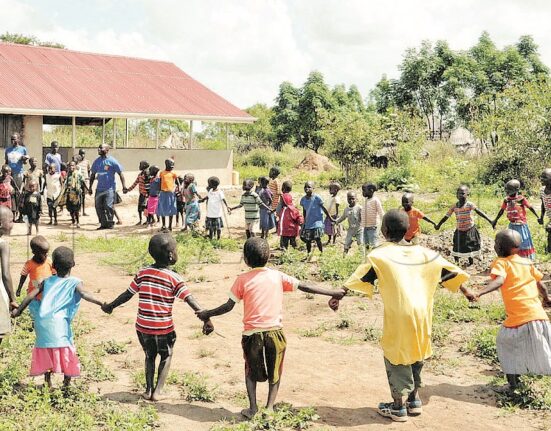
It is almost a month since learners returned to schools after they were closed in March 2020 to manage the spread of COVID-19. Many students have grown very big and tall after some have become mothers, while others were left behind by fellow students who attended virtual lessons. David Lukiiza talked to experts for coping tips that students can adopt to ease the pressure of resettling back in school.
Some learners, especially boys, were engaged in income-generating activities during the lockdown and because of this, many are still fantasising about a life of earning now and forgetting about education.
Secondly, having earned an income, some students erroneously believe they have the right to despise and not listen to their teachers.
Josephine Kasaato, the president of the Mothers’ Union at Namirembe Diocese in Kampala, advises that as opposed to despising their teachers, this is the time when students need to be close with them.
“We have had students who did not attend online studies during the two years of the lockdown, therefore, such students have been left behind as compared to their colleagues who have been studying online,” she says.
Aisha Musisi, a psychological counsellor, says some students are no longer as enthusiastic about school as was before the lockdown.
“Schools need to engage counsellors more during this time as they have an important role to play for students to actively participate in their education,” she says.
Musisi adds that school counsellors can contribute to student re-engagement. Musisi also suggests that teachers should support learners to feel confident.
“Sometimes students do not get engaged in school because they do not understand how to behave in a manner that will lead them to success in their endeavours. Therefore, teachers can have students form small groups to strengthen their social and emotional learning by paying more attention to building relationships and understanding social situations, as well as oneself and emotions,” she explains.
Work Without Play
Musisi further suggests that it is advisable to encourage learners to get involved in co-curricular activities at school.
She explains that students need to feel valued by their teachers.
On the other hand, teachers need to show students that they are interested in them by paying attention to what they have to say.
Go Beyond Teaching

Allan Gyaviira, the headteacher of Blessed Sacrament SS Kimaanya, Masaka says one key role that teachers have to play is guidance and counselling.
Gyaviira says there are guidance and counselling being done at all levels of education and includes one-on-one sessions.
“We meet students one-on-one, which allows them to open up compared to a group setting,” he says.
Group sessions are done in cases where students need to be helped to understand and share freely with each other. This may help students who are lagging behind and who did not take online and coaching sessions.
Gyaviira says there are various modes of assessment.
“With this teaching method, we intend to examine all students in a simple class exercise and this will help us identify those who need extra support,” he says.
Gyaviira adds that students feel more disengaged than ever before.
“They can be supported to become more committed in school once they feel they have the skills to succeed, achievable goals and teachers who demonstrate they care,” he explains.
Students need to be listened to more than before, according to the Rev. Can. Dr John Senyonyi, Teachers should have a friendly approach when students return an academician and former vice-chancellor for Uganda Christian University, Mukono.
“This time round, it is more vital that students are listened to more, especially to what they have to say, because they have been exposed to so many strange things during the time they have been away from school,” he says.
Senyonyi says teachers must pay more attention to students’ aspirations now that they are back in school and support them to achieve.
“Teachers may try to find out how prepared students are to study and keep safe amidst the COVID-19 challenges,” he says.
Senyonyi adds that parents and teachers must try as much as possible to engage students in order to find out how they would want to be supported.

Learners Need Support
“We have children who were victims of gender-based violence, rape and peer pressure back in the school setting,” Aisha Musisi, a psychological counsellor, says.
“There are also cases of teenage mothers who have returned to school. These need the support of their parents and guardians to take care of the babies so the girls can concentrate in class,” Musisi advises.
She says students feel more motivated in school if they have family members or guardians who support them.
Continuous engagement with the learners is one way to keep their discipline and behaviour in check to guard against suspensions and expulsions.
Josephine Kasaato, the president of the Mothers’ Union at Namirembe Diocese, says it will be painful for schools to have high expulsion cases due to indiscipline of learners when parents have just paid their hard-earned school fees.








Leave feedback about this